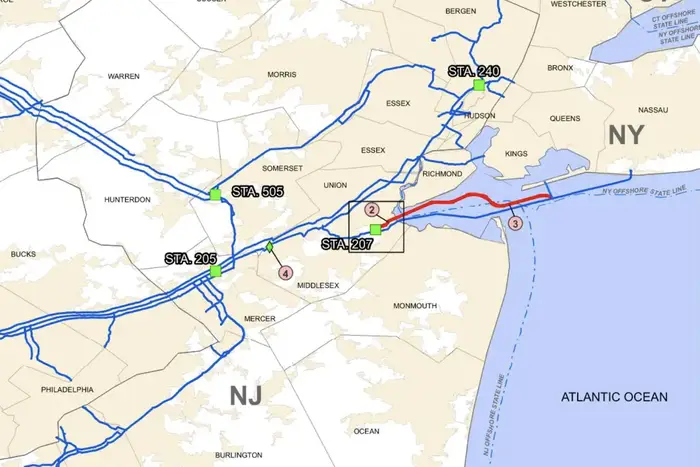New Yorkers are set to bear the financial burden of a new natural gas pipeline, which the federal government is promoting despite previous concerns over its environmental impact. An independent analysis from the Institute for Energy Economics and Financial Analysis has projected that the project will cost at least $1.25 billion, which is 17% more than initial estimates from the utility provider, National Grid.
The pipeline project, which was initially shelved, gained momentum in July 2023 following strong backing from the Trump administration for new fossil fuel infrastructure. It is currently undergoing a fast-tracked review process after the New York Department of Environmental Conservation concluded its 45-day public comment period last month. This decision came despite public protests advocating for more time and additional hearings.
Supporters of the pipeline argue that it will enhance the supply of natural gas to the region, potentially lowering energy costs and generating jobs. The construction phase is expected to include approximately 17 miles of pipes beneath the ocean floor near Staten Island and the Rockaways, extending into New Jersey. According to National Grid, the project could ultimately deliver enough gas to supply more than 2 million households in New York City.
Despite these claims, New Yorkers are facing immediate financial repercussions. Average monthly bills for residential customers in Long Island are projected to increase by $7.44, while those in Brooklyn, Staten Island, and parts of Queens could see hikes of $7.61. This is in addition to a pending rate increase from Con Edison that may add $26.69 to monthly bills, marking an increase of over 13%. Many Con Edison customers are already paying around $50 more per month than they did three years ago.
Concerns Over Job Creation and Environmental Impact
The report by the Institute for Energy Economics and Financial Analysis raises questions about the anticipated benefits of the pipeline. Suzanne Mattei, an energy policy analyst and author of the report, expressed skepticism regarding the project’s justification. “The arguments that they’re trying to come up with now are not convincing,” Mattei said. “Rate payers in New York are not going to benefit from this, but they’ll be forced to pay for it if this thing were approved.”
National Grid and pipeline owner Williams Company argue that the project will address winter reliability risks and contribute to lower prices. They claim the increased supply could save consumers $6 billion over the next 15 years. While they assert that the pipeline is necessary for meeting heating demands, the report contradicts this assertion, noting that only a few days of peak winter demand occurred last year, even during an unexpectedly cold winter.
Moreover, the economic benefits may not be as localized as proponents suggest. The analysis indicates that only 9% of the temporary construction jobs created by the project would be based in New York due to the specialized skills required for offshore pipeline installation. The permanent jobs created by the compressor stations are also likely to be situated in New Jersey, limiting local employment opportunities.
Political Responses and Future Energy Plans
The report has been forwarded to the office of New York Governor Kathy Hochul, accompanied by a coalition of advocates and elected officials urging her to reject the pipeline. They emphasize the need to accelerate investments in renewable energy sources instead. “The Governor has made it clear that all proposed projects must be reviewed impartially by the required agencies to determine compliance with state and federal laws,” stated Ken Lovett, Hochul’s senior communications adviser for energy and environment.
The pipeline project, first proposed in 2017, has faced considerable opposition due to environmental concerns, with state regulators previously denying it multiple times for violating water quality standards. As renewable energy initiatives gain traction, including the Champlain Hudson Power Express, which will supply 20% of New York City’s power from Canada next year, advocates argue that the future of energy should prioritize sustainability over fossil fuel dependency.
Despite the federal push for the pipeline, the ongoing debate highlights a growing tension between traditional energy sources and the push for a greener future in New York. The outcome of this project could have significant implications for energy policy, environmental standards, and the wallets of New York residents.







































































